Antibiotics in Meat: Why Your Kids Are Eating Traces of Antibiotics Daily and What It Means for Their Health
This article may contain affiliate links (which basically means if you buy something from a link on my site, I get a small percentage kickback from it.) However it’s no extra cost to you and it simply helps support this blog. Thank you so much for being here! I so appreciate you and hope you enjoy reading my articles!
As a mom, you want the best for your kids. But lately, you've noticed some concerning signs. Maybe your little one is constantly battling colds, or your toddler's tummy troubles seem never-ending. You're not alone. Many moms are finding themselves in a cycle of doctor's visits, over-the-counter remedies, and sleepless nights, wondering why their kids just can't seem to stay healthy.
What if I told you that the meat on your family's dinner table might be part of the problem? It's true. If you're buying conventional meat products, there's a high chance your kids are unknowingly consuming traces of antibiotics every single day. This isn't just about a few pills here and there - it's about a constant, low-level exposure that could be wreaking havoc on your child's delicate system.
Think about it: how often does your child complain of stomach aches? How many school days have they missed due to yet another cold? These aren't just annoying inconveniences - they're signs that something bigger might be going on. And while we often look for complex solutions, sometimes the answer is right there on our plates.
Antibiotics in meat aren't just about the food itself. They're silently impacting your child's health in ways you might not even realize:
They're messing with your kid's gut health, potentially leading to those constant tummy aches and irregular bathroom habits that drive you crazy.
They might be weakening your child's immune system, explaining why they seem to catch every bug that goes around the classroom.
They could be contributing to skin issues, mood swings, and even behavioral problems that leave you feeling frustrated and helpless.
As a mom, you're probably thinking, "Great, one more thing to worry about." But here's the good news: understanding this issue is the first step to making positive changes. In this article, we'll break down why antibiotics are used in meat production, what it really means for your child's health (in plain English, no medical jargon!), and most importantly, how you can make safer choices to protect your family without losing your mind in the process.
What Are Antibiotics, and Why Are They Used in Meat Production?
Antibiotics are drugs used to kill or inhibit bacteria, and they are crucial for treating infections in humans and animals. In the meat industry, however, antibiotics are often used not just to treat illness but to promote growth and prevent diseasein animals living in crowded or unsanitary conditions.
By giving antibiotics routinely, livestock producers can keep animals healthy enough to grow faster and larger, allowing them to increase production and profits. But here’s the problem: when antibiotics are used this way, they don’t just disappear—they can remain in the meat your family eats.
How Do Antibiotics End Up in Your Child’s Food?
When animals are given antibiotics, residues of these drugs can remain in their tissues even after they’re slaughtered. While there are regulations and withdrawal periods meant to minimize these residues, it’s not a foolproof system. Traces of antibiotics can still make their way into the meat you buy, which means your kids could be consuming them unknowingly.
Plus, when animals are treated with antibiotics, antibiotic-resistant bacteria can develop and remain in the meat. This poses a risk not just when consuming meat but also when handling raw meat during food preparation.
What Does This Mean for Your Child’s Health?
The presence of antibiotics in meat can have multiple implications for your child’s health. Here’s what you need to know:
Gut Health Disruption
Antibiotics aren’t selective; they kill both harmful and beneficial bacteria. When kids consume antibiotics through meat, it can disrupt the delicate balance of their gut microbiome. Since gut health is closely linked to overall well-being—affecting everything from digestion and immunity to mood and skin health—this disruption can contribute to a range of symptoms like digestive issues, weakened immunity, or even behavioral changes.
Increased Antibiotic Resistance
One of the most concerning effects of antibiotic use in meat production is the rise of antibiotic-resistant bacteria. When kids consume meat containing antibiotic-resistant bacteria, they can develop infections that are harder to treat because they no longer respond to common antibiotics. This increases the risk of severe illness and prolonged recovery times, which can be especially challenging for young children.
Allergic Reactions and Sensitivities
While not common, some children may react to antibiotic residues in meat, especially if they have allergies or sensitivities to specific antibiotics. Symptoms can include skin reactions like rashes, digestive discomfort, or more severe allergic responses.
Impact on Hormonal Health
Antibiotics used in livestock can also interact with hormones, potentially disrupting hormonal balance in growing children. Though research is still emerging, early exposure to antibiotic residues could have long-term implications for hormonal development and growth.
Are Organic and Antibiotic-Free Labels Reliable?
When shopping for meat, you may have noticed labels like “organic,” “antibiotic-free,” or “no added hormones.” But what do they really mean, and are they reliable?
Organic Meat
Organic certification ensures that animals were raised without the use of antibiotics or synthetic hormones. This is the best option if you want to minimize your child’s exposure to antibiotic residues. Organic animals are also required to have access to pasture, which generally means they are raised in more humane and sanitary conditions, reducing the need for antibiotics in the first place.
Antibiotic-Free Meat
“Antibiotic-free” or “raised without antibiotics” labels mean that the animals were not given antibiotics at any point in their lives. While this is a positive step, it’s important to look for certification to ensure these claims are verified by third-party organizations.
Grass-Fed and Pasture-Raised Meat
While not directly related to antibiotics, grass-fed and pasture-raised labels often indicate that animals are raised in more natural conditions. When animals are allowed to graze and roam freely, the likelihood of needing antibiotics is reduced.
Buy Organic, Grass Fed Meat from Thrive Market, shipped right to your door! Get $40 OFF your first order when you use this link :)
Why Grass-Fed Organic Meat is the Best Choice for Your Kids
Choosing grass-fed organic meat for your kids is one of the best ways to ensure they’re getting high-quality protein without harmful residues. Grass-fed organic animals are raised on pasture, eating their natural diet of grass rather than grains, which means they’re less likely to need antibiotics. Here’s why it’s the best choice for your family:
No Antibiotics or Hormones: Organic certification guarantees that animals weren’t given antibiotics or synthetic hormones. This is crucial for your child’s health because it reduces their exposure to antibiotic residues and lowers the risk of consuming hormone-disrupting chemicals.
Higher Nutrient Profile: Grass-fed organic meat is richer in omega-3 fatty acids and contains more antioxidants and vitamins like vitamin E compared to conventionally raised meat. These nutrients support brain development, immune function, and overall health for kids.
Ethical and Sustainable Farming Practices: Grass-fed organic animals are raised in more humane conditions, which often means they live in less crowded and cleaner environments. This reduces the need for antibiotics in the first place. Choosing organic and grass-fed supports farms that prioritize animal welfare and environmentally sustainable practices.
Why We Should Be Giving Kids More Plant-Based Proteins
It’s no secret that Americans consume a lot of meat—often more than necessary. When it comes to our kids, it’s important to teach them balance. Kids don’t need huge servings of meat at every meal; in fact, we can reduce their intake by incorporating more plant-based proteins into their diet. Here’s why it’s worth considering:
Reduced Exposure to Antibiotics and Hormones: By including more plant-based proteins like beans, lentils, tofu, and quinoa, you’re automatically lowering your child’s exposure to antibiotics and hormones that can be present in conventionally raised meat. Plant proteins are naturally free of these concerns.
Rich in Fiber and Nutrients: Plant-based proteins are not only packed with protein but also come with fiber, vitamins, and minerals that support gut health, digestion, and overall wellness. These nutrients are often lacking in diets that rely heavily on meat.
Environmental Impact: Raising livestock requires a lot of resources and contributes to environmental issues like deforestation and greenhouse gas emissions. Teaching kids to enjoy plant-based proteins helps reduce this impact and promotes a more sustainable way of eating.
Balance and Variety: By offering your kids meals that center around plant-based proteins with smaller sides of meat, you’re teaching them balance and variety. For example, dishes like lentil soups, bean tacos, or quinoa bowls with small amounts of grass-fed organic chicken or beef help kids get the protein they need while also benefiting from the nutrients in plant-based foods.
Shifting to more plant-based meals doesn’t mean cutting out meat entirely; it’s about finding a balance that works for your family and promotes long-term health. Making these changes can help reduce the risks associated with overconsumption of meat and ensure your kids are getting a well-rounded, nutrient-rich diet.
How to Protect Your Kids from Antibiotics in Meat
Making the right choices for your family can feel overwhelming, especially when you’re faced with so many different labels and options. Here’s how you can navigate the market and reduce your child’s exposure to antibiotics in meat:
Choose Organic Whenever Possible
Hey mama, let's talk about organic meat. You want the best for your kids, but your wallet might be feeling the pinch. Don't worry, you're not alone! Here are some down-to-earth tips to help you make it work:
Keep your eyes peeled for sales. When you spot a good deal, grab it!
Buy in bulk when you can. Freeze what you don't need right away for later.
Order from Thrive Market where they have organic meats at a discounted price. Use this link to get $40 OFF your first order!
If you can't go all-organic, focus on the meats your family eats most often. That way, you're making a big impact where it counts.
Remember, every small step counts. You're doing an amazing job just by being aware and trying. We're all in this together!
Support Local Farmers
Local farmers often raise animals without antibiotics. At farmers markets, you can find high-quality meat and ask questions directly about how the animals are raised. Talking to local farmers helps you understand where your food comes from.
Here are some tips for shopping at farmers markets:
Bring cash and reusable bags.
Arrive early for the best selection.
Ask questions about farming practices and pest control.
Build relationships with vendors for updates on product availability.
Choosing antibiotic-free meat at farmers markets supports local farmers and promotes healthier food options for your family.
Incorporate More Plant-Based Proteins
You don't have to rely on meat for every single meal. In fact, mixing things up with some plant-based options can be a game-changer for your family's health (and your sanity)!
Here are some practical tips to get you started:
Start small: Try swapping out meat in just one meal a week. Meatless Monday, anyone?
Get the kids involved: Let them pick a new veggie to try or help you make a colorful bean salad. It's amazing how much more likely they are to eat something they've helped prepare!
Stock up on easy plant-based proteins: Keep canned organic beans, lentils, chickpeas, and frozen edamame on hand for quick meal additions.
Sneak in the good stuff: Add pureed lentils to spaghetti sauce or mashed beans to brownies for a protein boost your kiddos won't even notice.
Remember, you don't have to go full-on vegetarian to make a difference. Even small changes can have a big impact on your family's health. And who knows? You might just discover some new family favorites along the way. So go ahead, mama - give it a try and see how good it feels to nourish your crew with some plant-powered goodness!
Read Labels Carefully
Not all labels are created equal, so it’s important to look for trusted certifications. Labels like “USDA Organic” or “Animal Welfare Approved” are reliable indicators that the meat was raised without antibiotics. Avoid products that use vague terms like “natural,” as they aren’t regulated and don’t guarantee anything about antibiotic use.
The Future of Antibiotics in Meat: What's Being Done?
As a mama, you're probably wondering if things are changing for the better. Well, more and more of us are demanding organic and antibiotic-free meat, which is awesome! But we've still got a way to go. The rules about using antibiotics in farm animals are different depending on where you live, and sometimes they're not followed as strictly as they should be. The good news is that there are groups out there fighting for stricter rules and trying to get farmers to use antibiotics more responsibly. By choosing antibiotic-free and organic options when you can, you're not just looking out for your family's health—you're also supporting a shift towards farming that's better for everyone. You are voting with your dollars, mamas!
Final Thoughts of Mine as a Functional Nutritionist
Let's be real, mama…antibiotics in meat are something we need to think about, especially when it comes to our kiddos' health. While it's not always possible to avoid them completely (because, life), making smart choices and going for antibiotic-free options when you can really helps protect your little ones from the risks that come with antibiotic leftovers and those pesky resistant bacteria. By getting to know those food labels, supporting local farms and organic options, and mixing up your family's protein sources, you're taking solid steps to keep your crew healthy.
Remember, knowledge is your superpower here. Now that you know how antibiotics in meat can affect your kids, you can make choices that feel right for your family. You've got this, mama!
Join the Nourished Family Academy Course Today & Take Charge of Your Family Wellness!
You want the best for your family, but between the endless nutrition advice, confusing labels, and picky eaters, it’s easy to feel overwhelmed and stuck. You know how important it is to provide your kids with real, nourishing foods, but where do you even begin? Imagine feeling confident in every choice you make—knowing you’re giving your family the tools to grow, thrive, and avoid the health struggles that so many face today.
With the Nourished Family Academy Course, you’ll get step-by-step guidance, expert tips, and practical solutions to create a balanced, healthy lifestyle for your family. No more confusion or guilt around meals—just simple, effective strategies that work for busy moms like you, trying to support family wellness for now and for generations to come. Picture your mornings filled with easy, nutritious breakfasts and your evenings free from battles at the dinner table, knowing you’re setting the foundation for lifelong wellness for your kids.
Ready to make this change for your family? Click here to get on the waitlist or enroll now, and start your journey towards a healthier, happier home!
Bailey Petrucelli is a Women’s & Family Nutritionist and wellness advocate, passionate about helping moms and families take charge of their health. On her blog, The Peachy Nutritionist, she shares practical tips, empowering holistic wellness information, nutritious recipes, and real-life wellness strategies to empower moms to create a healthy and balanced lifestyle for their families.

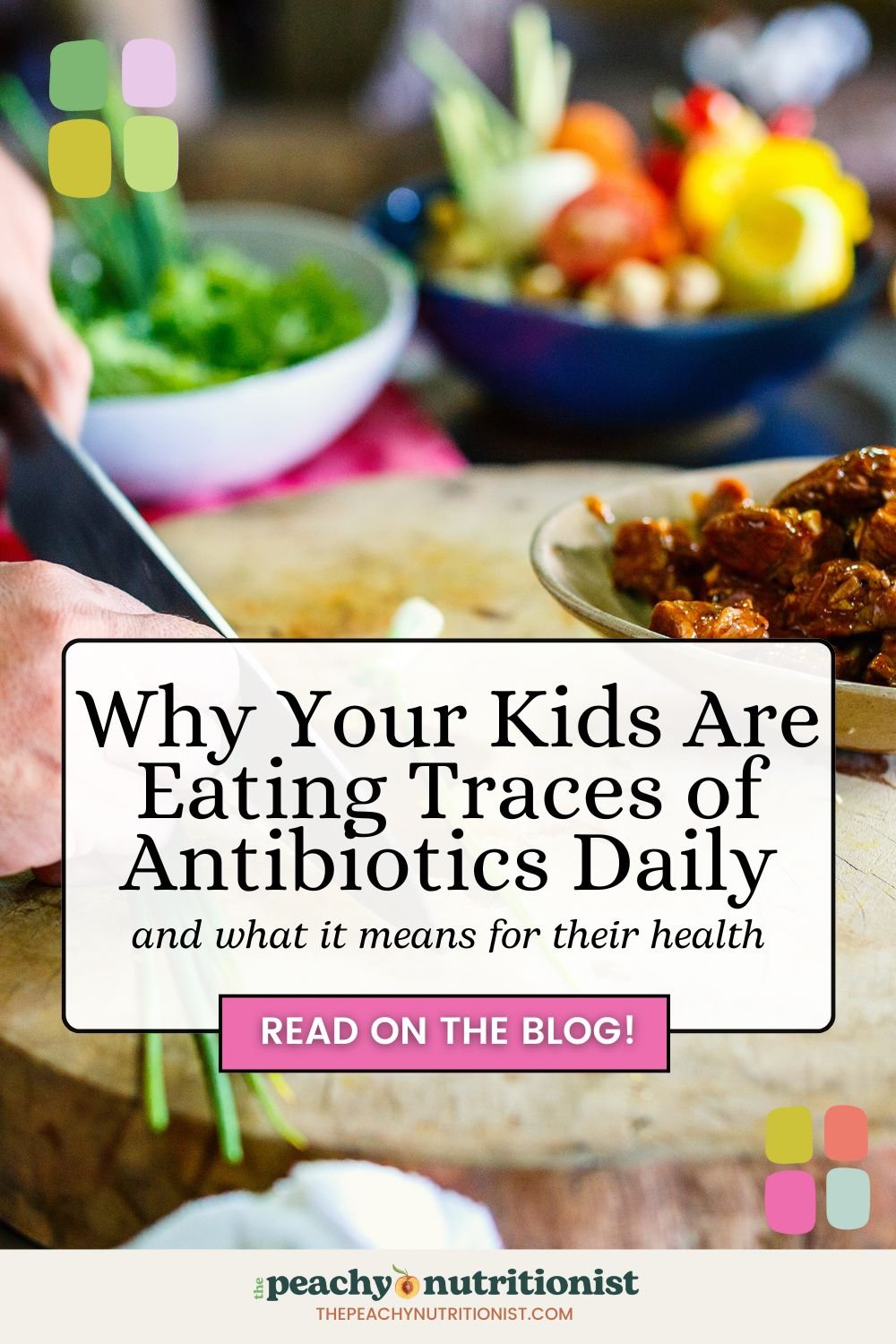






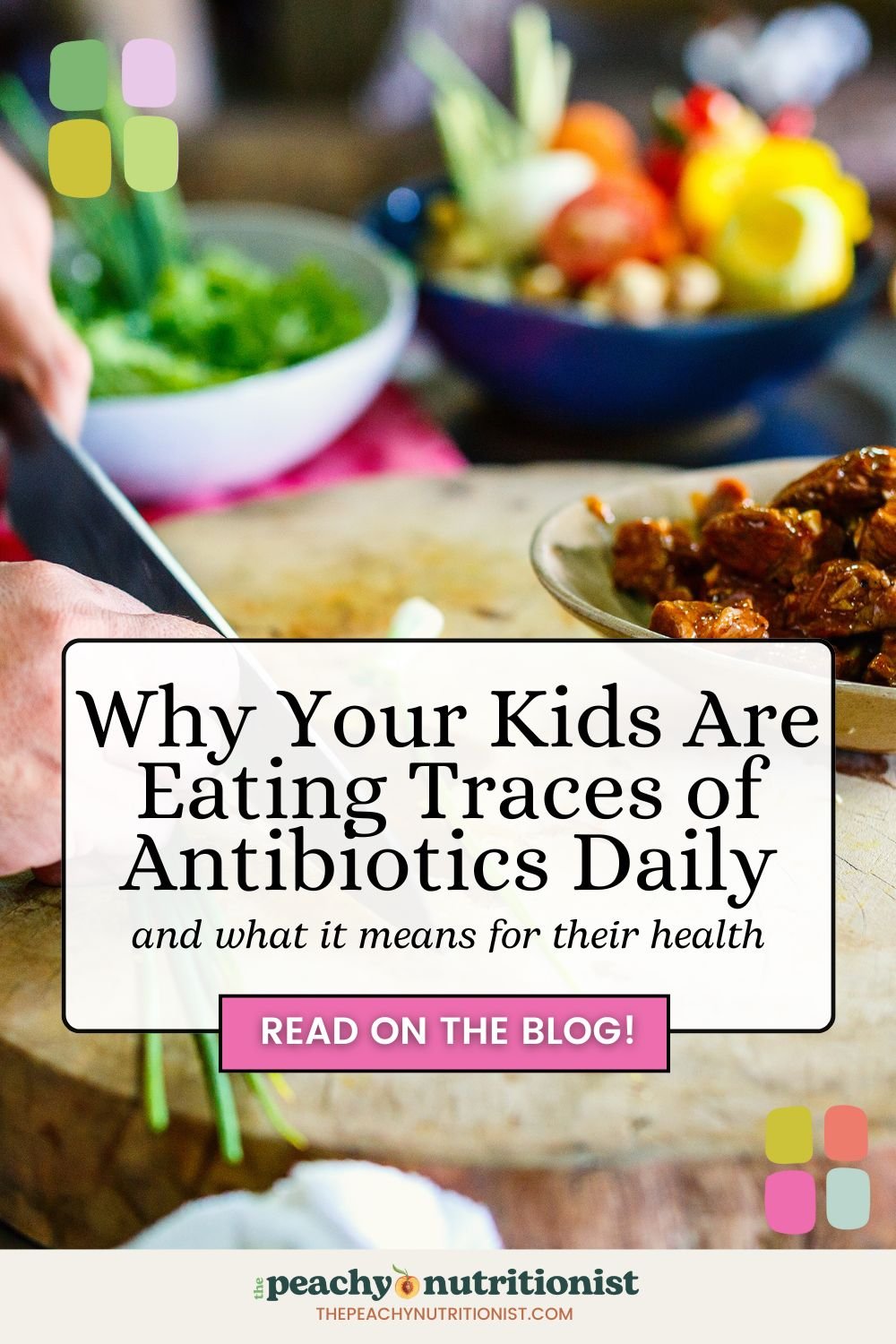












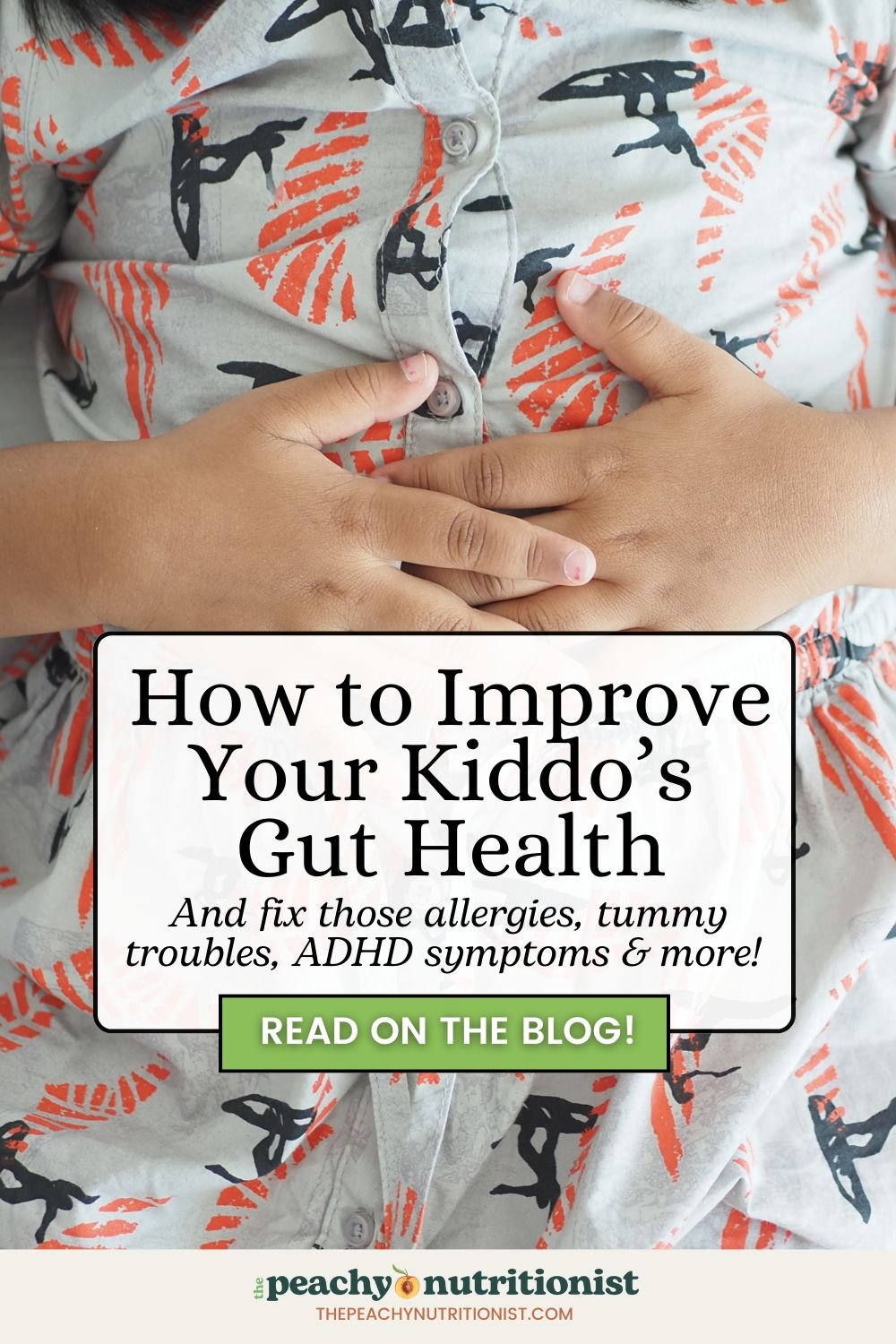
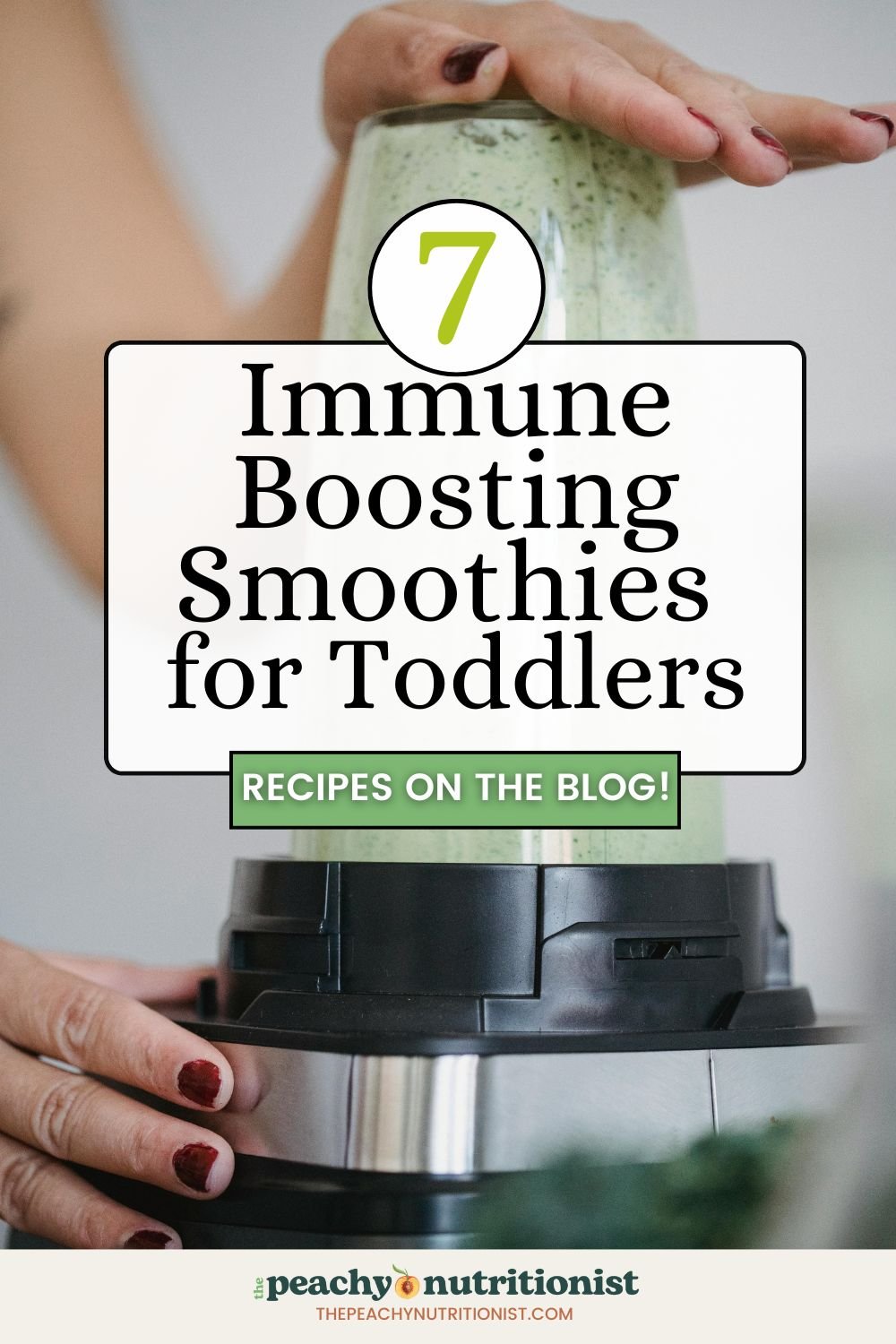

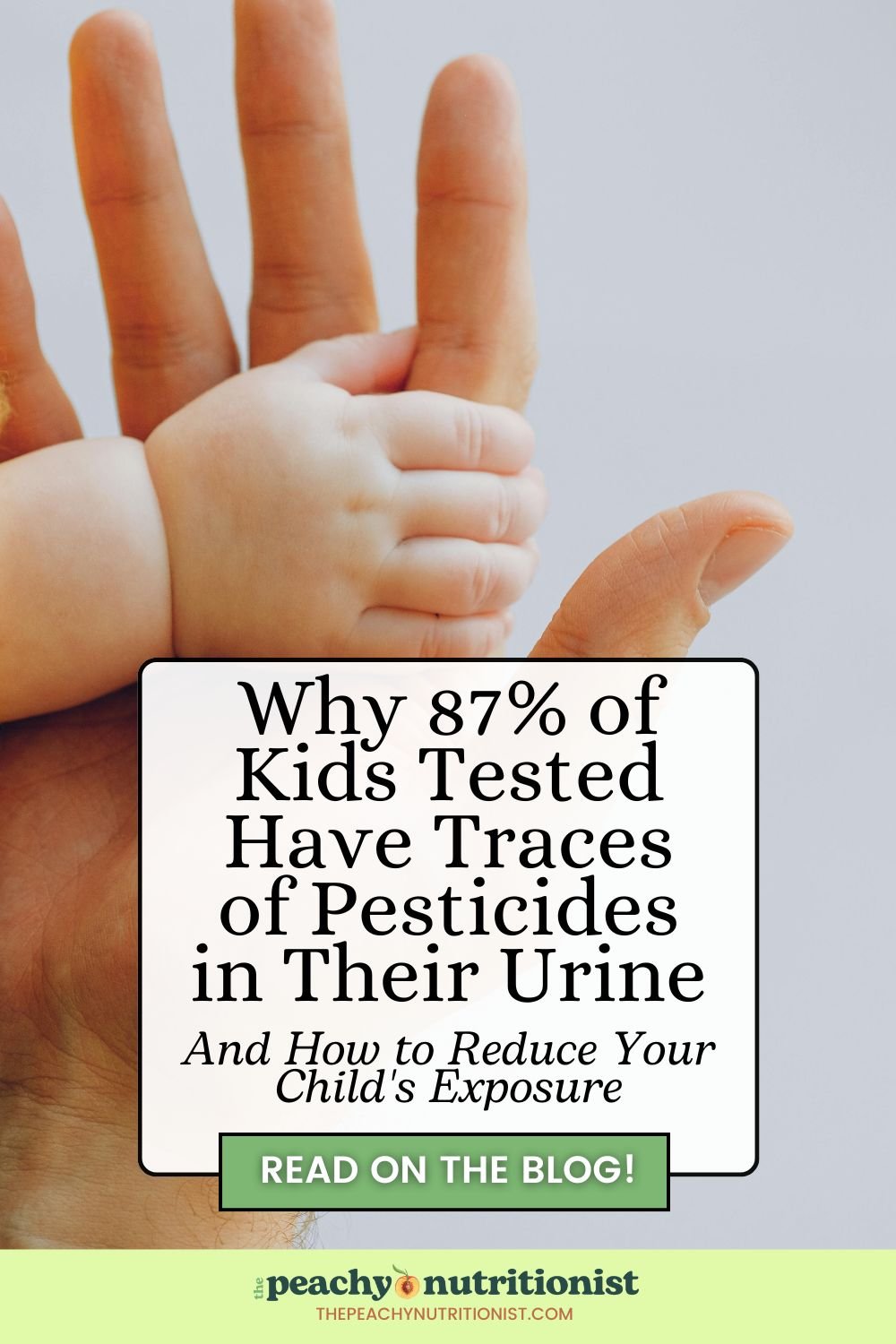





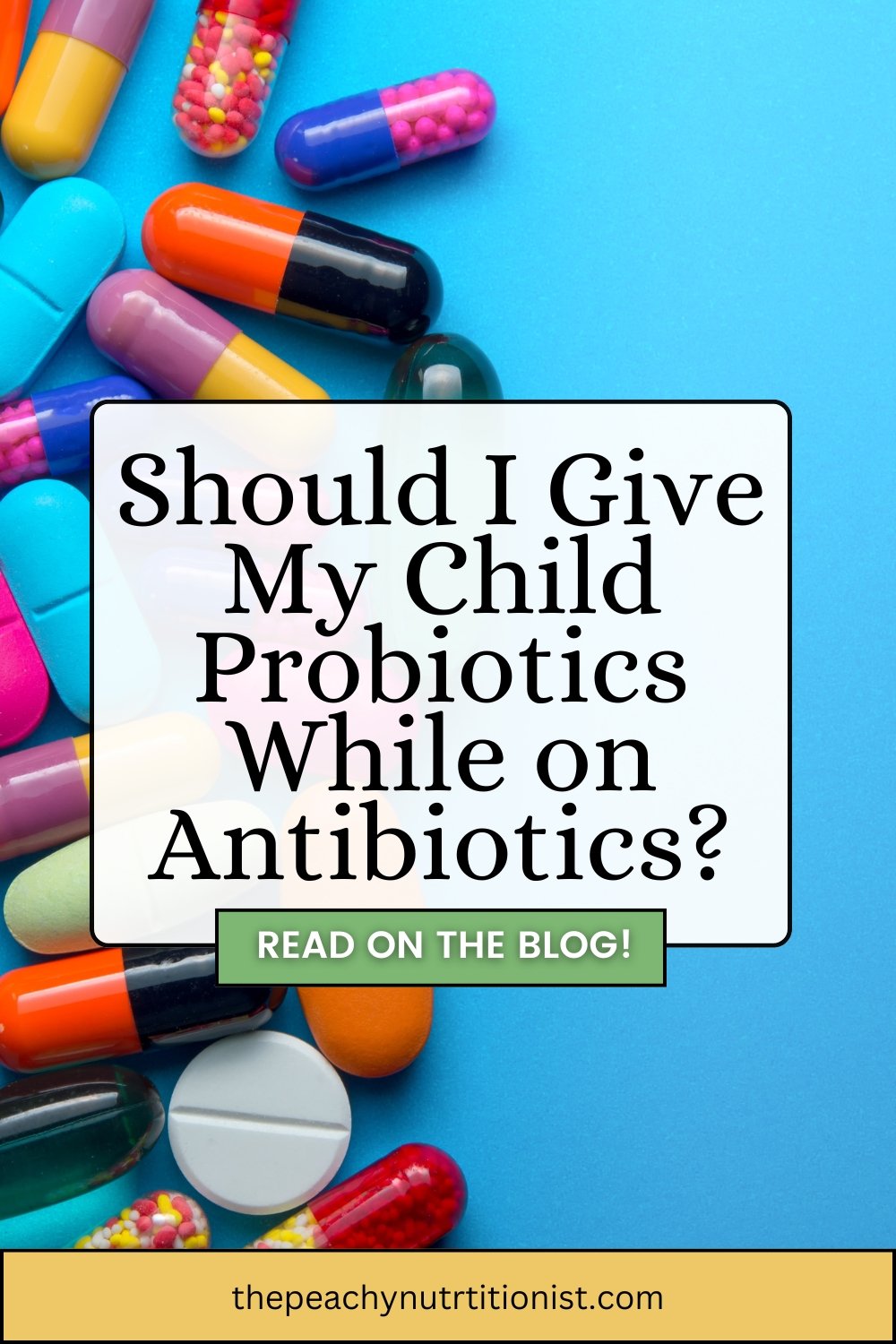



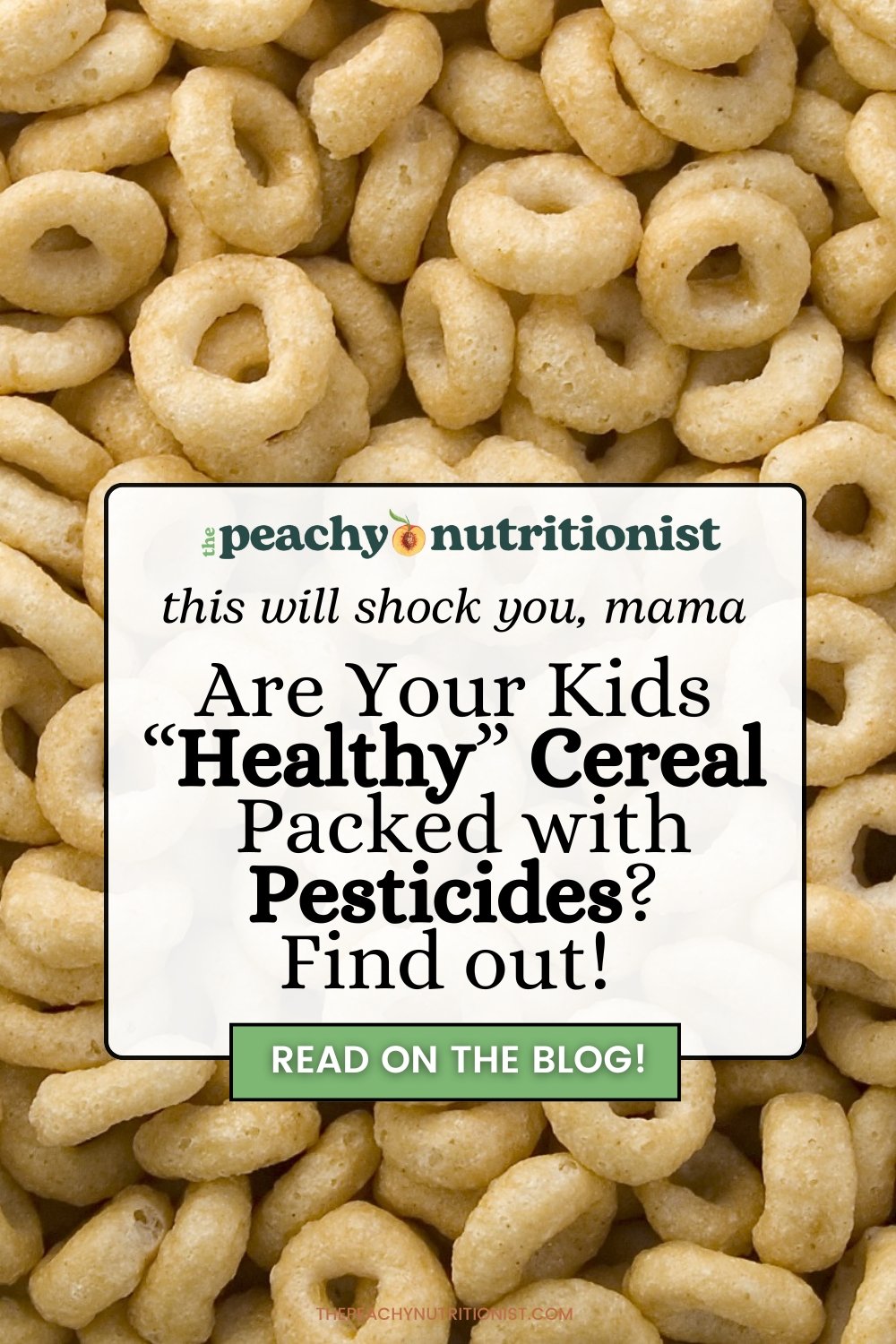

Need ideas for healthier Valentine’s Day candies for kids? Check these out! Links included!